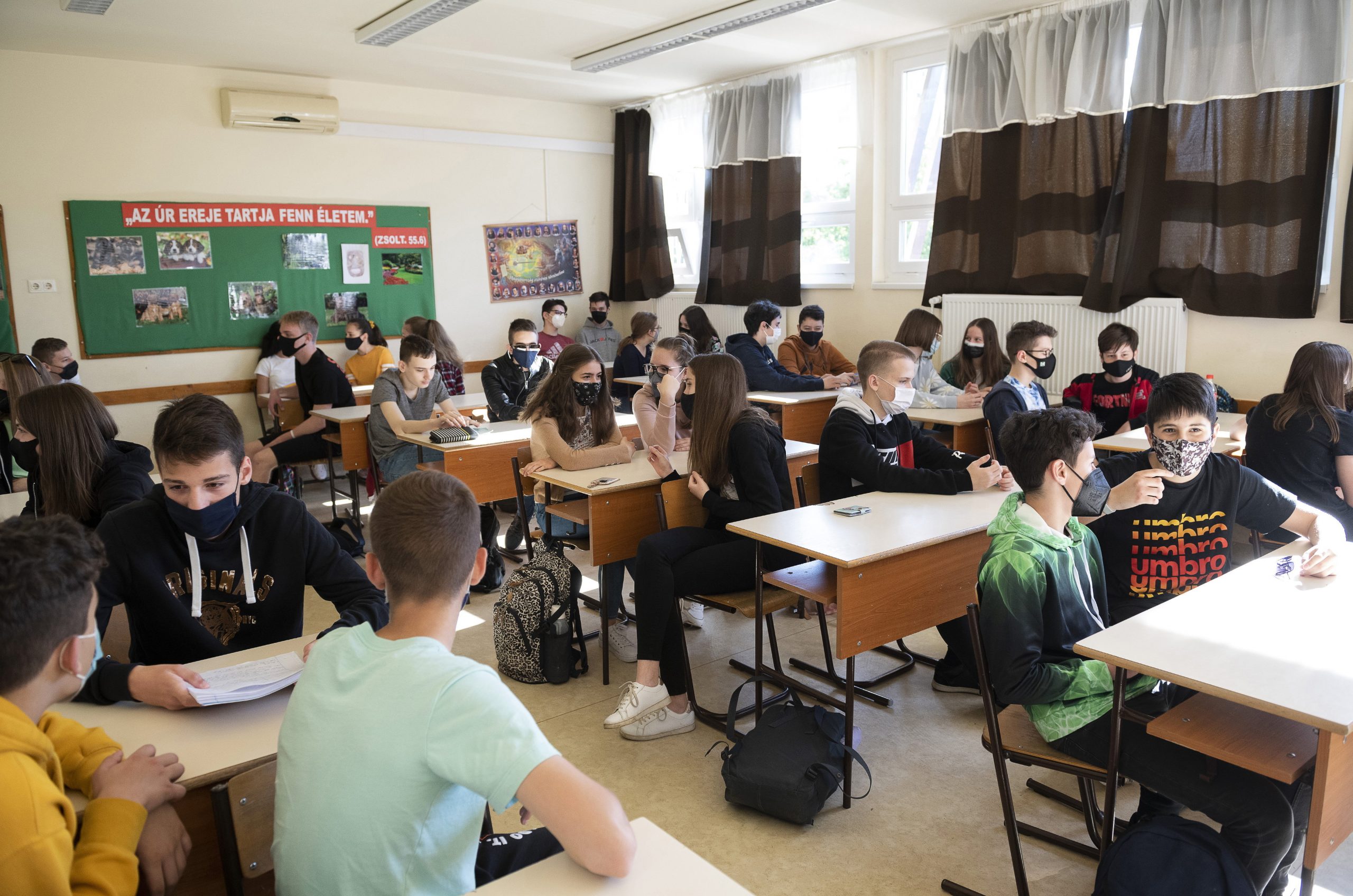
According to teachers' trade union PSZ, there is currently a shortage of around 12,000 full-time teachers in public education.Continue reading

With the start of the school year, there is always more focus on the problem of the teacher shortage in Hungary. Although the government usually brushes it off by saying that the vacancies are mainly seasonal as most teachers decide to change institutions during the summer break, it is actually a much more complex problem. While there is no doubt that a significant proportion of the mass vacancies that occur in the summer are eventually filled, it has been clear for years that low salaries and the low social prestige of the profession mean that fewer and fewer people are choosing to become teachers. So much so that some believe if we don’t put a stop to the current trend the situation will spiral out of control in less than a decade.
“There is a shortage of teachers, I think it’s moderate at the moment, which is an average indicator: there are regions of the country where it’s a major problem, and others where not as much. But in two or three years’ time, it will be very serious everywhere,” Péter Horváth, president of the National Teachers’ Chamber (NPK) told leftist Népszava in an interview.
“If nothing changes, in five to eight years the situation will spiral out of control,” Horváth commented.
The words of the leader of NPK are particularly alarming because the organization was set up by the Orbán administration a few years ago, therefore many accused the group of having no other purpose than to be a compliant negotiating partner for the regime.
According to official figures, 7,300 students will start their studies this September at Hungarian universities and colleges in the field of education (as teachers, kindergarten teachers, special educators).
The number of first-year students is well below the average of previous years, even if the number of freshmen will likely be slightly higher eventually, due to those taking makeup admission and those starting in the second half of the year. However, in previous years, the number of first-year students in these fields of education was much higher, ranging from 9,500 to 9,800 between 2017 and 2019.
In addition to the fewer and fewer people who tend to choose this career, it is also a problem that many of them decide to look for another profession immediately following their graduation or after only a few years of teaching.
“The figures show that roughly 40-45 percent of those who enroll in university drop out, then in the first three years we lose about a third of those who graduate and become teachers,” Péter Horváth said.
Rubbing salt into the wound because there are not enough replacements, a significant proportion of the teaching staff will soon be retiring.
This year we can expect an average of 2,500-2,800 entry-level teachers, while the number of those retiring is around 4,000, according to the head of NPK. The situation is projected to get even worse in a few years’ time, with an average of 6,200 teachers retiring each year between 2023 and 2030. In the meantime, the number of students will barely decrease, so no one will remain to teach them.
To avoid the collapse of the education system, the president of NPK says it will be necessary to have the next generation of teachers studying at universities right now – but that is not the case.
Péter Horváth believes that the rate of career changes could be prevented, but this would mainly require an increase in teachers’ salaries. However, the 2022 budget still does not include the necessary funding for this.
Today the wages of teachers in Hungary are so low that the basic salary of those working in the sector with 3-5 years of professional experience does not exceed the level of payment of the monthly minimum wage for skilled workers.
The situation in the sector is so bleak that in 2019 the salaries of entry-level teachers with bachelor’s degrees (BA/BS) had to be supplemented after the monthly minimum wage for skilled workers exceeded their payment. (Under current legislation in Hungary it is forbidden for someone with an academic degree to have a lower salary than the guaranteed minimum wage of skilled workers). Following the minimum wage increase in 2020, the salaries of entrant teachers with a master’s degree (MA/MS) had to be adjusted as well.
“The most outrageous thing is the beginner teacher, whose net hourly wage is 920 forints (EUR 2.64),” said Tibor Csernák, a member of trade union PDSZ, on RTL Klub news. He added that the salary increase of teachers has not followed the rate of changes in the Hungarian minimum wage since 2014.
Meanwhile, teacher’s union PSZ has launched a petition asking for an increase in teachers’ salaries. In its petition, the PSZ wants the minimum wage to be the basis for their salaries as of September.
But the government is seemingly unwilling to address the issue. Family Minister Katalin Novák told RTL Klub news that there are no plans to increase teachers’ salaries. Novák said that while the salary of beginner teachers is indeed a problem, the more experienced ones can make a good living and that the government is not planning a pay raise until the economic situation allows for it.
Featured photo illustration by Attila Balázs/MTI